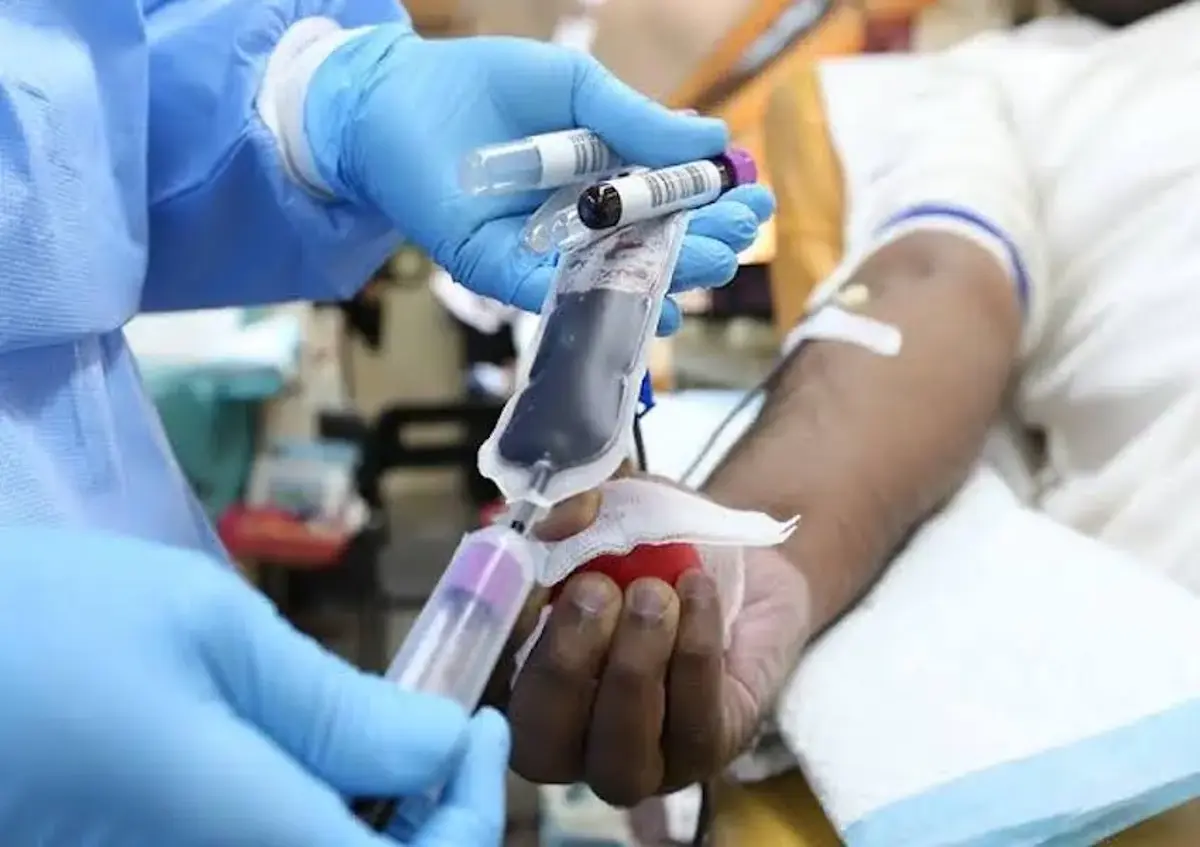
In commemoration of the World Blood Donor Day 2024, the World Health Organisation (WHO) has reiterated the need for regular blood donation by healthy population in order to save the lives of millions in dire need of blood transfusion for survival.
The apex health agency in a statement signed by the Regional Director, Dr Matshidiso Moeti, to mark the 20th Anniversary of voluntary blood donation across the world, emphasised the importance of voluntary blood donations, which are crucial for maintaining healthy and responsive healthcare systems.
She lamented acute shortage of blood in low- and middle-income countries, which explained the agency’s call for more voluntary blood donation worldwide to create a safe health ecosystem for all.
World Blood Donor Day, usually marked every 14 June, is a day set aside by the WHO, to call everyone to action in recognition of the importance of blood donation, to thank those who have given, and to inspire future generations to continue this life-saving practice.
“Regular blood donation by a sufficient number of healthy people is needed to ensure that blood will always be available whenever and wherever it is needed.”
“While the need for blood is universal, access to blood is not. Blood shortages are acute in low- and middle-income countries,” she explained.
Commenting on the theme of the celebration, which is “20 years of celebrating giving: Thank you, blood donors,” she appreciated all blood donors for their selfless efforts in giving life to the sick because blood is life.
She said, blood donors are celebrated for their life-saving contributions, which have helped millions of people recover from illnesses, injuries, and surgeries.
She further noted that the anniversary is not only a moment to thank these unsung heroes but also to recognise the ongoing challenges and encourage further progress towards universal access to safe blood transfusion.
The anniversary, she said, also emphasises the requirement for regular, unpaid blood donations to secure universal access to safe blood transfusion for every human being as this ensures that blood supplies are always available for emergencies.
According to Moeti, “Blood is needed by women with complications during pregnancy and childbirth, children with severe anaemia, often resulting from malaria or malnutrition, accident victims and surgical and cancer patients.
“Regular blood donation by a sufficient number of healthy people is needed to ensure that blood will always be available whenever and wherever it is needed.
“While the need for blood is universal, access to blood is not. Blood shortages are acute in low- and middle-income countries”.
The WHO’s Regional Director further harped on the importance of every single blood or plasma donation, saying it is a precious lifesaving gift, as regular donation is the key to building a safe and sustainable supply.
She canvassed wide participation of the population in regular blood and plasma donations to ensure that everyone can access blood and plasma proteins when they need it.











It is essential to promote a culture of regular voluntary blood donation to meet the increasing demand and save millions of lives worldwide.